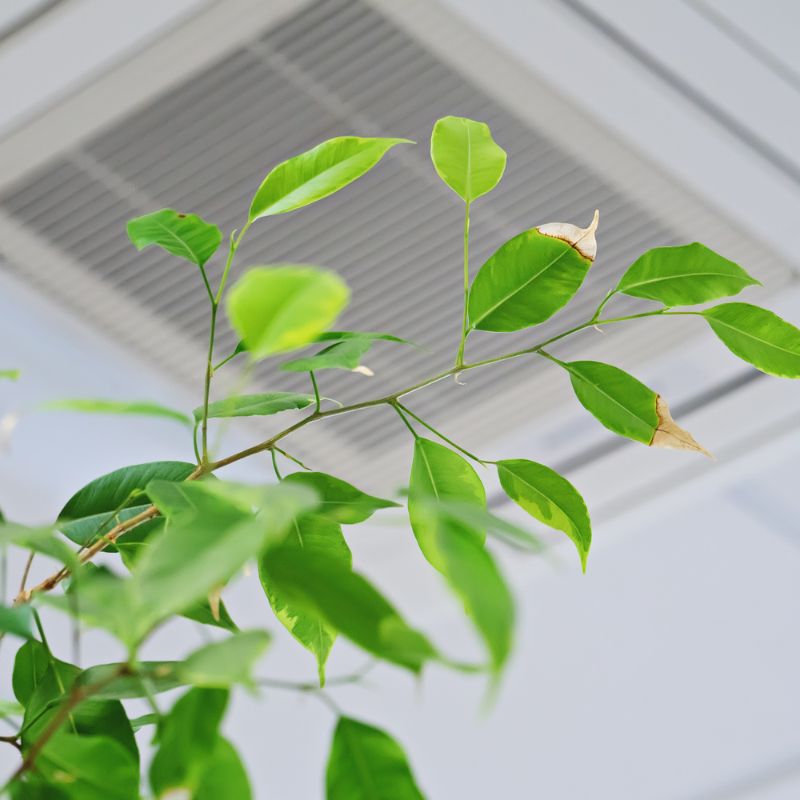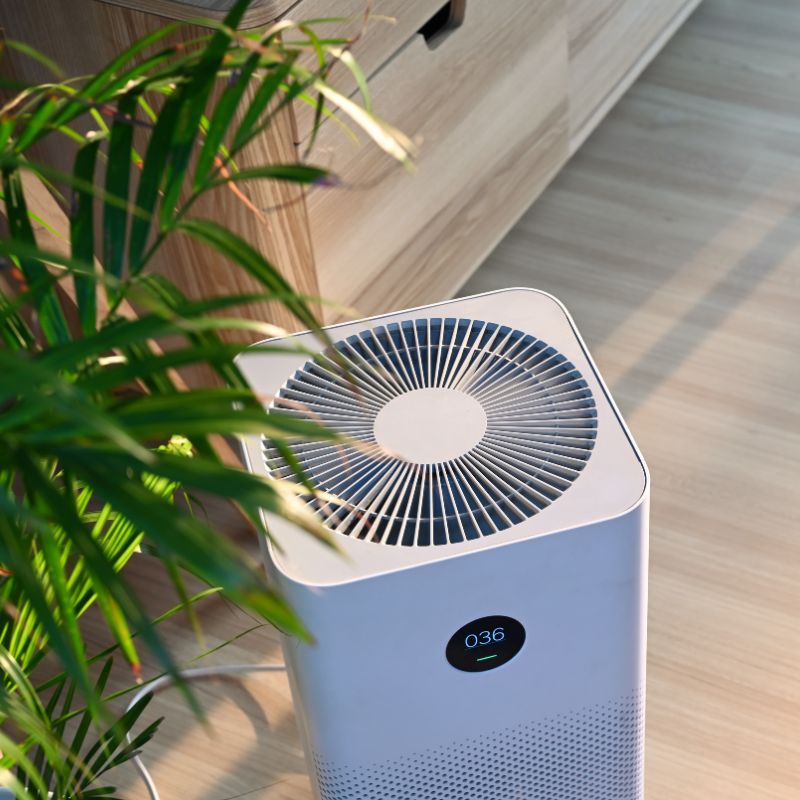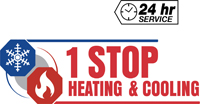Your home should be a sanctuary – a place where you feel safe, comfortable, and healthy. However, what if I told you that your HVAC system could be undermining your well-being? The truth is, poor indoor air quality (IAQ) can contribute to a range of health issues and often stems from poorly maintained HVAC systems.
Let’s delve into the potential health risks associated with HVAC systems, how to identify signs that your system might be making you sick, and crucial tips for maintaining a healthy indoor environment.
So what are the potential health risks associated with HVAC systems? How can you identify signs that your HVAC is a contributor to poor health? What are things you can do to maintain a healthy indoor environment in your home?
1 Stop Heating & Cooling is here to help. Our team’s experience and knowledge can keep your HVAC system running smoothly and efficiently – and without the risk of harm to your home and family.
The Link Between HVAC Systems & Health
We all spend a lot of time indoors, especially this time of year. And yes – the quality of the air that you are breathing while inside plays a significant role in your health!
Your HVAC system is designed to regulate temperature, humidity, and air quality, but when not properly maintained, it can become a breeding ground for various contaminants which, when circulated throughout your home, can lead to respiratory problems, allergies, and other health issues.

Common Health Issues Linked to Poor IAQ
- Respiratory Problems: Contaminants such as dust, pollen, pet dander, and mold spores can trigger or exacerbate respiratory conditions like asthma and allergies.
- Headaches and Fatigue: Low IAQ is a leading cause of symptoms such as headaches, fatigue, and dizziness, leading to discomfort and decreased productivity.
- Allergic Reactions: If you have allergies, you may experience heightened symptoms when exposed to indoor allergens that circulate through the home if your HVAC system isn’t well maintained. This can lead to intensified sneezing, coughing, itchy eyes and other annoying, if not dangerous reactions.
- Infections: Poor ventilation can allow viruses and bacteria to linger in the air, increasing the risk of dangerous respiratory infections.
Signs Your HVAC System Might Be Making You Sick
One problem with identifying whether your HVAC system is contributing to poor indoor air quality and subsequent health issues is that the signs and symptoms could stem from many different sources, however, closely paying attention to a few indicators can help you determine whether or not your HVAC is contributing to the problem. Here are some indicators that can help.
- Unpleasant Odors: If you smell foul or musty odors coming from your vents it could indicate mold or bacterial growth within the system.
- Poor Air Circulation: Have you ever walked into a room and noticed that it feels stuffy and uncomfortable? That feeling suggests that air is not flowing properly through the room. If you notice that consistently, it could mean that your HVAC ventilation isn’t working the way it should. Insufficient ventilation allows indoor pollutants to accumulate, leading to stagnant, contaminated air.
- Heightened Sickness: If you or your family members experience an increase in respiratory symptoms or illnesses when at home, it could be a sign of poor indoor air quality. If you notice prolonged sickness, especially in conjunction with these problems, your HVAC system could be the culprit.
- Presence of Mold: Excess moisture within HVAC components or in your home’s ductwork can create an environment within your HVAC system where mold and mildew thrive and release spores into the air. Visible mold growth around vents, ducts, or in other areas of your home indicates a moisture problem, which can exacerbate IAQ issues.
Tips for Maintaining a Healthy HVAC System
It’s important to remember that your HVAC system is an important part of making your home a great place to live. There are a number of simple, inexpensive, proactive things you can do to make sure that your HVAC is serving to make your home safer and more comfortable.
1 Stop Heating & Cooling is dedicated to making sure our customers get the most out of their HVAC systems. That is why we are just a phone call away from helping you with your Armstrong County heating and cooling services.
Here are some things you can do to make sure your HVAC is working as it should and therefore your home is a safe and enjoyable place to dwell.
✓ Regular Maintenance
Schedule annual HVAC inspections with us at 1 Stop Heating & Cooling. Our team of technicians will identify and address any issues before they escalate. Our professional servicing helps optimize your system’s performance and efficiency while reducing the risk of IAQ problems.

✓ Change Air Filters
Your air filters are the first line of defense against airborne contaminants. When they get dirty and full, your system will have to work harder to do its job – which creates unnecessary expenses. In addition to extra work on your HVAC parts, a dirty air filter will fail to stop contaminants from dispersing through your home.
Be sure to replace disposable air filters every 1-3 months, or clean and replace reusable filters according to manufacturer recommendations. This simple task goes a long way in maintaining a healthier and more efficient HVAC system.
✓ Ensure Proper Ventilation
Keep vents and air ducts unobstructed to facilitate airflow throughout your home. These things can easily collect dust and debris. Be sure to keep them clean and unobstructed. Consider installing exhaust fans in kitchens and bathrooms to remove excess moisture and pollutants.
We Offer HVAC Services Near Kittanning, Freeport & Beyond
Your HVAC system is vital to keeping your home an enjoyable place to live. It’s a great honor to provide our customers the HVAC services necessary to keep such an important part of their home working at its best. Call 1 Stop Heating & Cooling today to schedule your next inspection and maintenance. You will breathe easier – literally! – knowing your HVAC is in great hands.

Recent Comments